Steer clear of these 6 cleaning products if you have pets
Beware! These are the cleaning products you should never use around pets given their toxic formulas and irritable ingredients

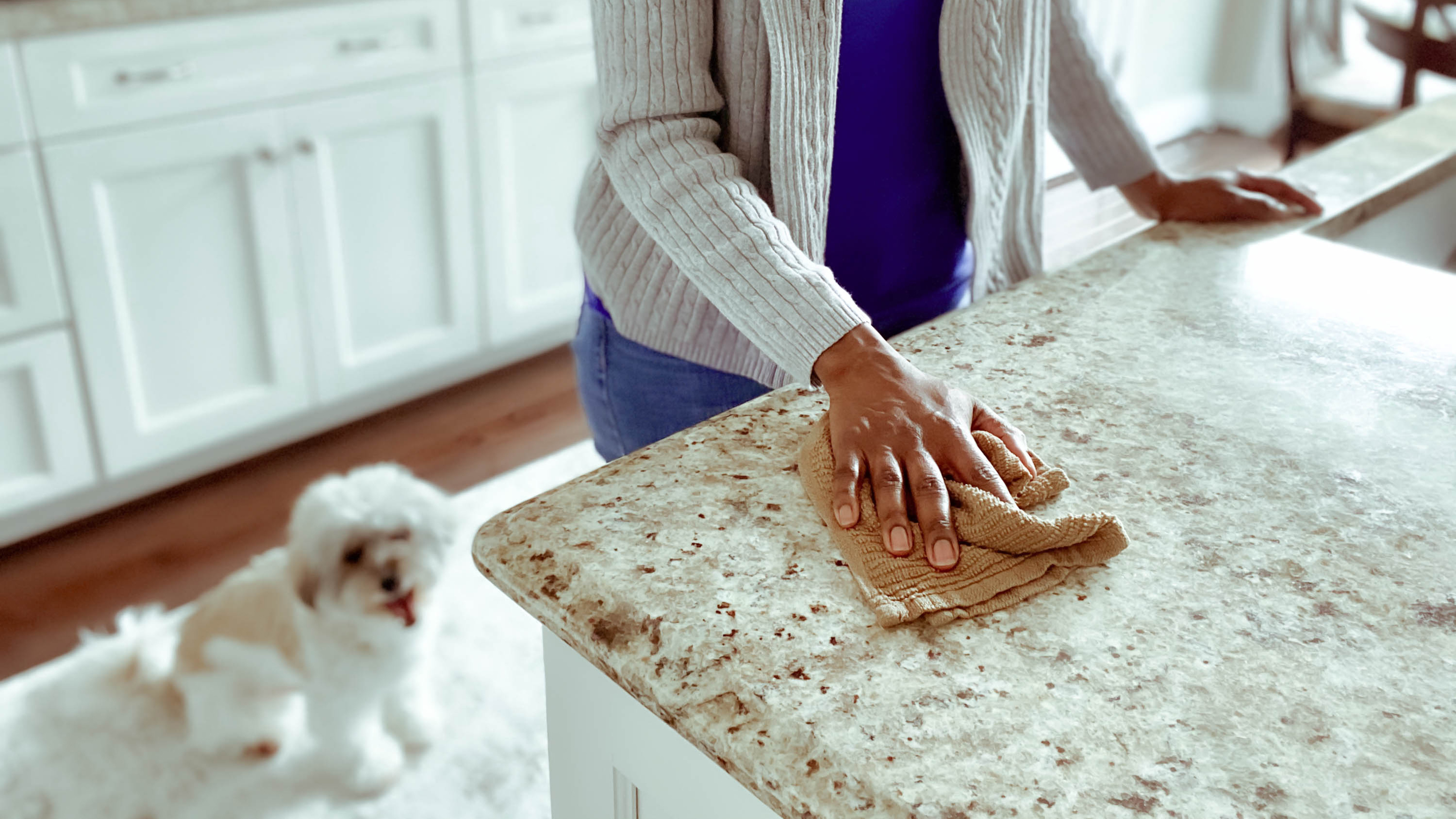
Do you know there are cleaning products you should never use around pets? Well, you should! If, for whatever reason you're doubling down on your cleaning regime at the moment, determined to keep everything germ-free and smelling fresh, spare a thought for your pet pooch or puss.
Dogs and cats can get everywhere and into everything – including using the toilet as an alternative water bowl, or the kitchen bin as an all-you-can-eat buffet (gross!). However, if you have just squirted bleach around the toilet rim, or used one of many clip-on cleaning supplies, this could be dangerous for your precious fur baby.
So swap toxic detergents for pet-friendly cleaning products that will still function in killing harmful germs and bacteria – without a costly trip to the vet. Using gentle alternatives need not be expensive. If you've got a cupboard dedicated to baking, and keep a good collection of condiments, chances are you're halfway there.
We'll show you what to look out for so that you can take the appropriate steps in either replacing your supplies altogether or using them with caution.
Cleaning products you should never use around pets
Our four-legged friends are hypersensitive to the strong odors and fragrances from cleaning products, which could lead to irritation and, sometimes, breathing difficulties.
And, as cleaning expert Deyan Dimitrov, CEO of laundry delivery service Laundryheap, warns, there are ingredients in the liquids and sprays that can cause harm to animals. Read on to see what they are.
1. Ammonia
Commonly found in drain cleaner, oven cleaners, and floor cleaners, ammonia is a popular ingredient in cleaning products because of its degreasing ability. It is highly toxic to pets and can cause severe irritation to their skin and eyes, as well as burning in the nose, throat, and stomach if they lick it.
Get small space home decor ideas, celeb inspiration, DIY tips and more, straight to your inbox!
Keep your furry, or feathered, friends away from products containing ammonia. If you use them, ensure your pet stays in a different room until it’s completely dried and ventilate the space well.
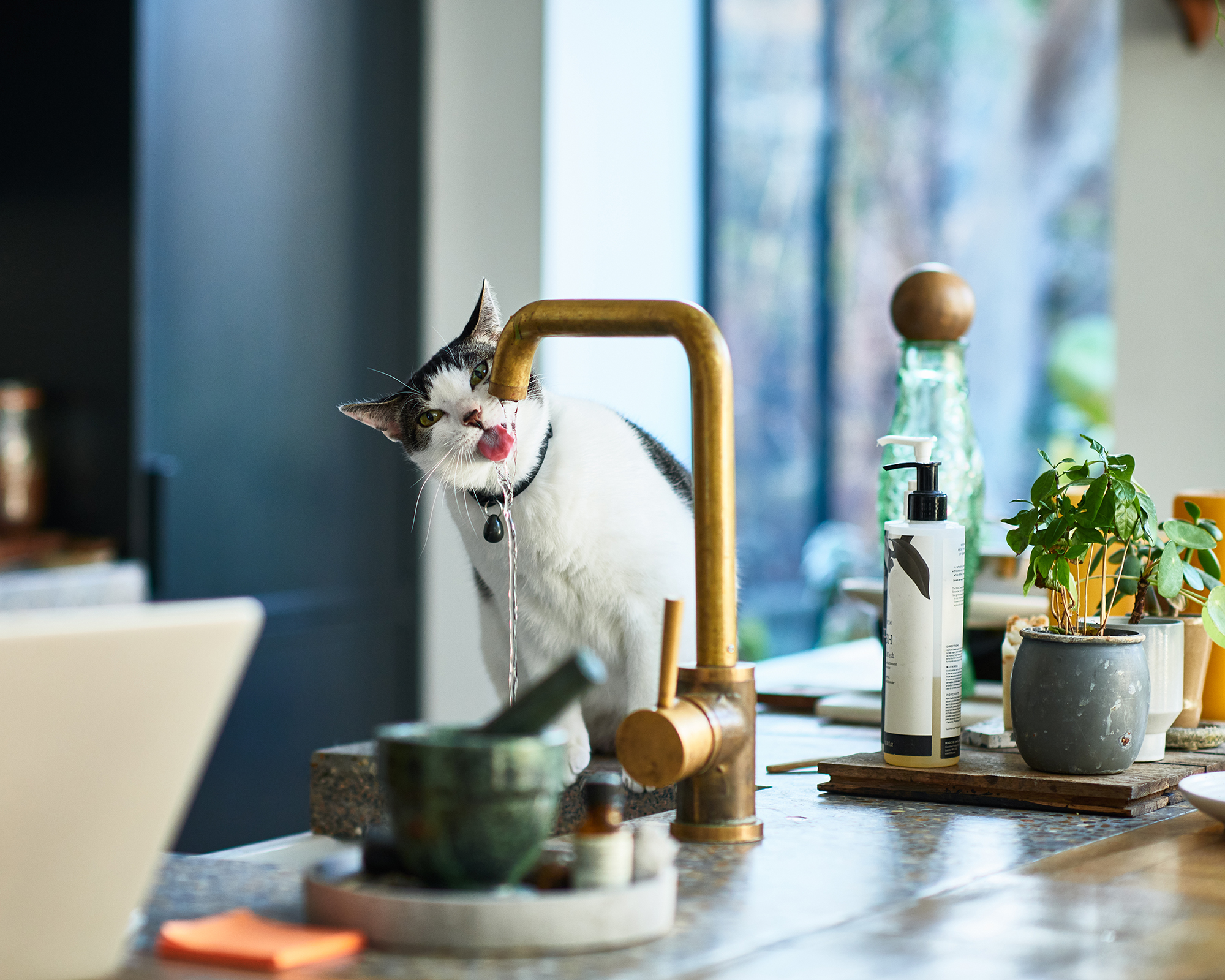
2. Bleach
Your pets' sense of smell is hypersensitive. Bleach is highly likely to irritate dogs’ delicate noses and can even cause breathing problems, such as asthma. If ingested, bleach is toxic to dogs and cats because of its chlorine content. If possible, opt for a safer, non-toxic eco-friendly cleaner such as Milton’s All-Purpose Cleaning Spray. If you must use bleach, rinse the area with plenty of water and keep your pets away until it is completely dry.
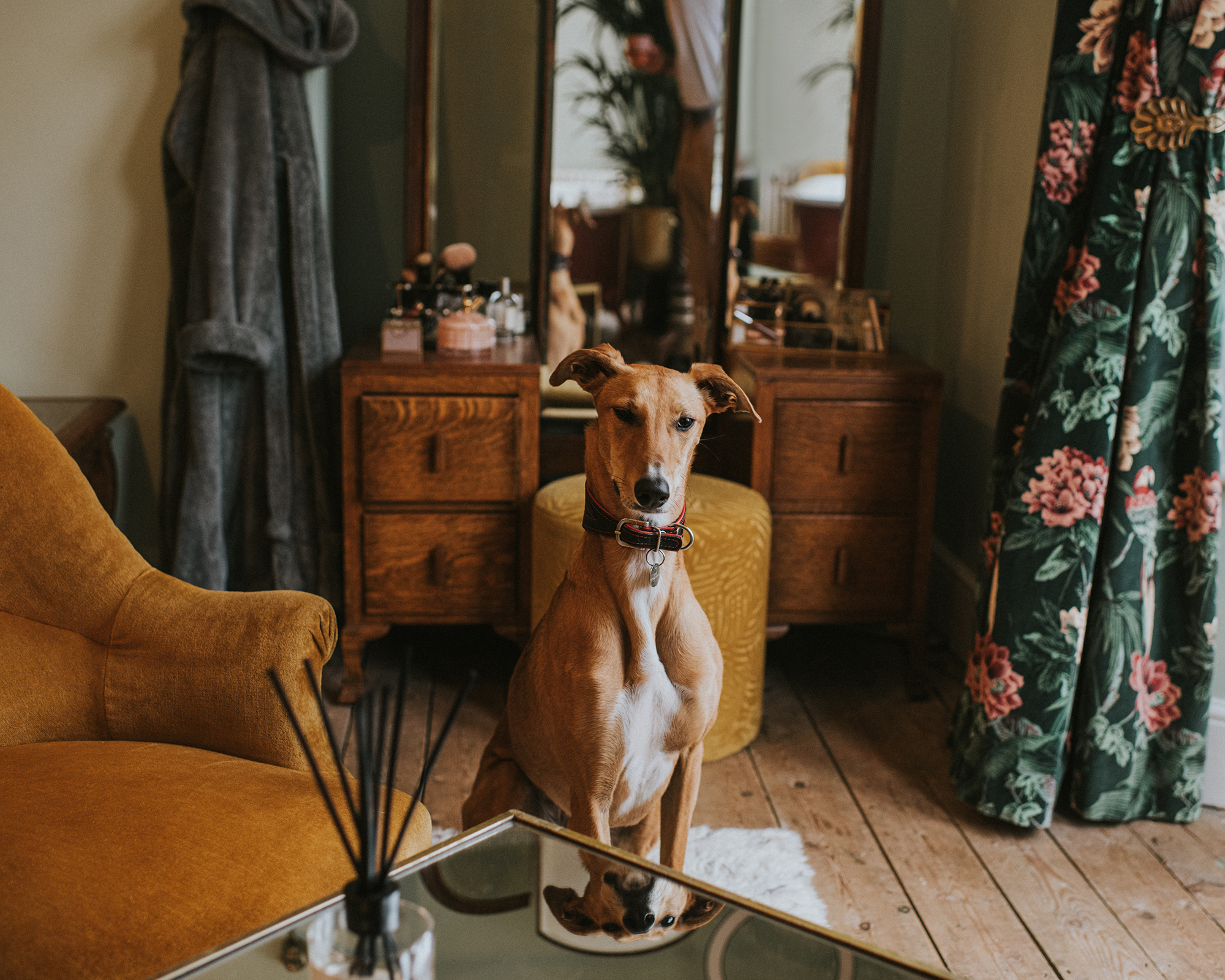
3. Phthalates (sometimes listed as fragrance)
Phthalates can be found in products used to make your home smell good. These could be air fresheners, linen sprays, carpet fresheners, and other home deodorizers. They can be dangerous if inhaled or used near pets, so again, make sure animals are kept out of the room if you’re using a product containing phthalates, or opt for a non-toxic alternative.
In fact, when you take your pet's sense of smell into account, you should treat all home fragrances with caution. Not all are dangerous, but if you have ever found one overpowering, think about how your four-legged friend feels.
Instead, look to freshening alternatives to common scents. One of the benefits of houseplants is that they can purify the air. But before you pick up an indoor plant online, or at your local garden center, beware that some plants are fatal to pets. Lillies, for instance are commonly known as a toxic plant to cats, though there is a long list of plants that are poisonous to dogs too.
4. Benzalkonium chloride (disinfectant)
Many disinfectants contain benzalkonium chloride so it’s best to be cautious with this product. This chemical can cause surface irritation on paws, eyes, and the nose if it comes into contact with them. Disinfectant is often used in the home to keep viruses and bacteria away, but dilute it before use (as recommended on the instructions) and wait until all areas are dry before letting your pet near it.
Be sure to look at the packaging of things like your patio cleaner in particular as it can contain this irritant. Annie Collyer, our deputy eCommerce editor, and pet mom to pug Doug, swears by the GardenersDream Kennel Cleaner (available at Amazon) as one of the pet-friendly cleaning products to clean paving and outdoor areas.
5. Essential oils
Are essential oils bad for dogs? You might be wondering whether your relaxing oil diffuser is doing wo(man's) best friend any harm. But, the answer isn't crystal clear it seems.
According to veterinary experts, dogs can tolerate natural oils better than cats but this is only limited to certain fragrances. For example, when looking at which essential oils are safe for dogs cardamom, fennel, helichrysum, frankincense, spearmint, chamomile, frankincense, ginger, lavender, myrrh oil, and cedarwood are approved for use by the pros. On the other hand, you might want to give cinnamon, citrus oils, tea tree, and peppermint a wide berth.
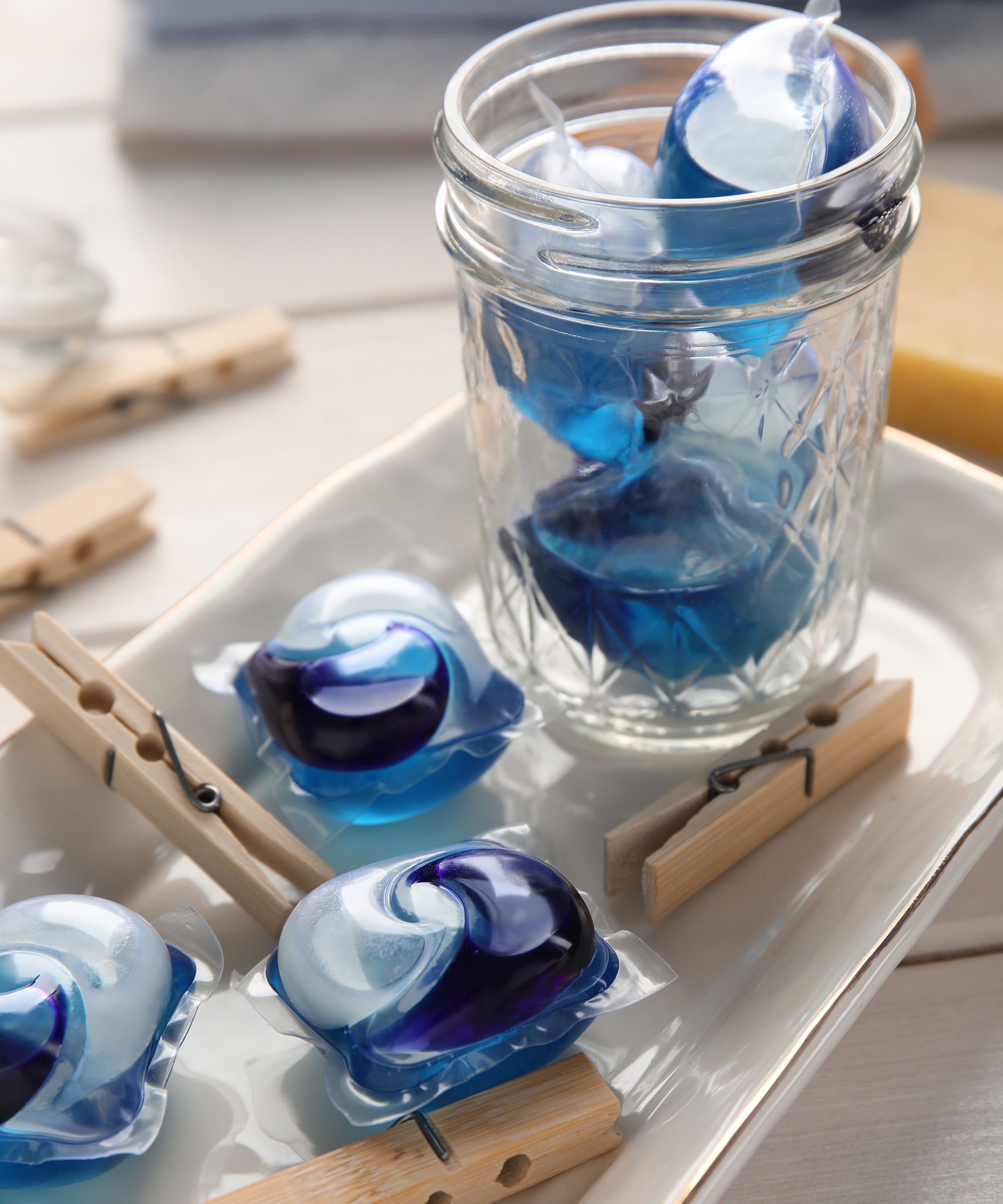
6. Nonylphenol ethoxylate
Unless you're a vet and know all the likely toxins in your home, you may take for granted what you put into your washing machine, including washing powders and pods. Capsules in particular can look like toys or treats so if you're worried that your pet will ingest one, switch to a pet-friendly cleaning product or, keep your tabs in a tightly-sealed container. If yours are particularly pretty (like the Smol sachets), consider displaying them in a chic glass jar on an open kitchen shelf.
It's best to treat pets as if they are small kids, so just as a packet would say 'keep out of reach of young children', you'll want to adhere to the same advice for your animals.
'Nonylphenol ethoxylate is a chemical commonly found in laundry detergent. This is something that can cause massive skin irritation on pets, leaving them with uncomfortable rashes, spots, and flaky skin,' explains Jacquelyn Kennedy, CEO, and founder of PetDT.
'It is also why you should use eco-friendly laundry detergents that are as toxin-free as possible when washing items that will be in contact with your pet, such as dog blankets and similar. If they are washed with laundry detergents that contain these harsh chemicals, they will irritate your pet's skin and cause serious problems.'
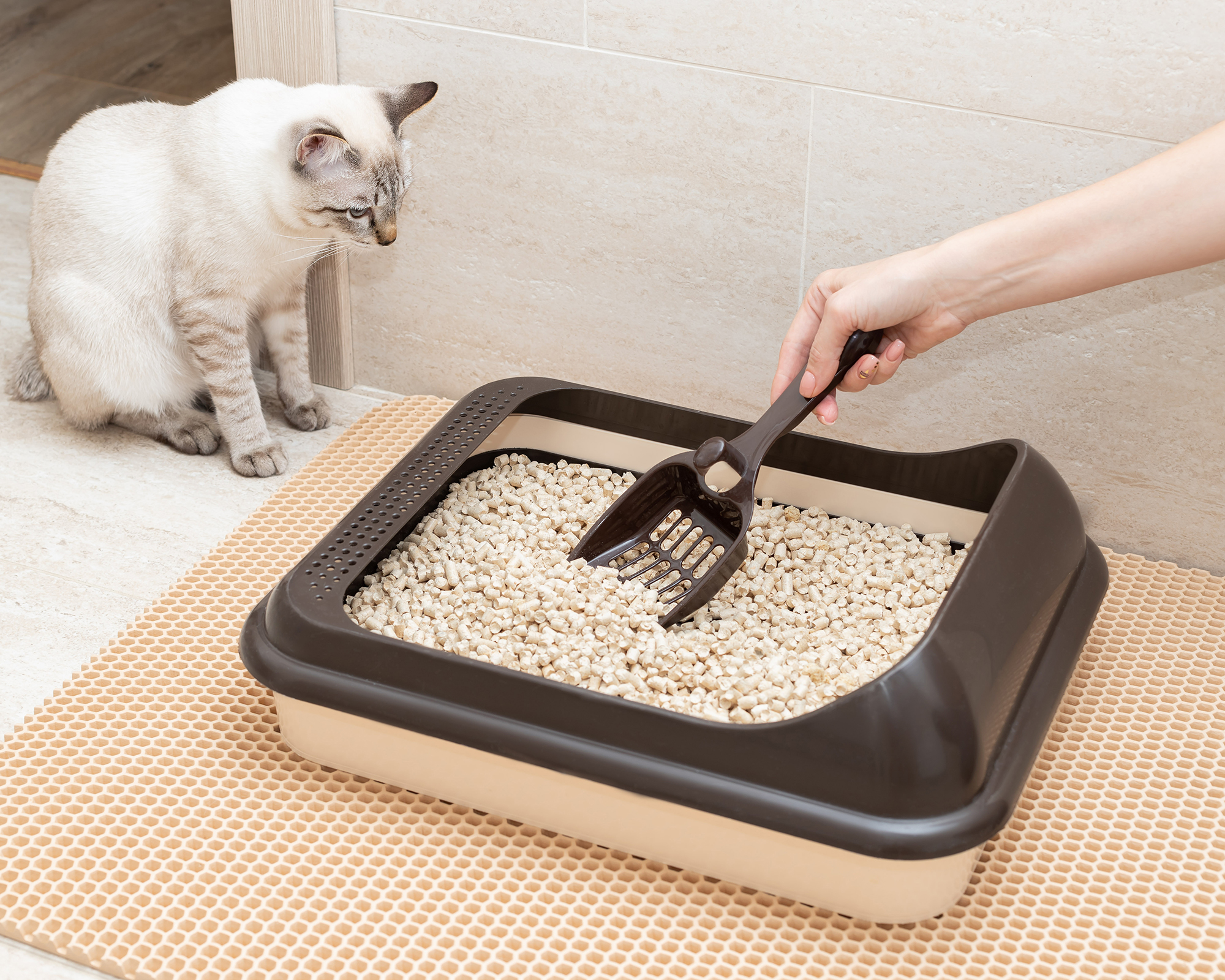
Pet-friendly cleaning products you can use instead
Avoiding harsh cleaners doesn't mean that you can't sanitize your space. Vinegar can be used to clean the majority of surfaces, and you can choose between distilled white vinegar or ACV to clean countertops that pets might have jumped on, as well as paw-printed floors and the perimeter of a messy litter tray.
Just as we need to use the loo, our pets do too. But while we've listed the Poo-Pourri in our air freshener guide, you can't go spritzing that on kitty litter. Instead, cleaning with baking soda is a cheap and effective way to stop the smell of poop and pee from taking over your house or apartment.
And, don't underestimate the cleaning power of hot water alone. The best steam cleaners can remove stubborn marks and debris without the need for additional product.
How do you clean a house with pets?
According to Method's cleaning experts, 'If you’ve got furry family members, it’s important to use cleaning products that are thoughtfully formulated, particularly on surfaces which most household pets, like cats and dogs, may come into contact with,'
'Opt for plant-based and highly concentrated products where possible to ensure maximum power when fighting stagnant odors and muddy paws. Fragranced cleaning products will also be your friend, allowing you to react quickly and refresh your home in no time – our Multi-Surface Concentrated Cleaner in Joyful Bing Cherry + Bergamot is a firm favorite for everyday use.'
'Fur and dust can easily collect on surfaces and in corners, so it’s best to clean your home top-to-bottom: starting by dusting the ceiling, then wiping surfaces and saving vacuuming and mopping until the very last.'
'We would always advise following any cautions on the pack and use the usual precautions, as with any household products. Should excess amounts of any product come into contact with your pet’s skin or fur, wipe this off with water, and if ingested, call your vet immediately.'

Jacquelyn Kennedy is a canine behavioral specialist, professional dog trainer, and the founder and CEO of PetDT. She created PetDT to provide dog owners with a readily accessible archive of breed-specific information and experience and to act as a go-to guide to canine health, nutrition, care, and more.

Hi, I'm the former acting head ecommerce editor at Real Homes. Prior to working for the Future plc family, I've worked on a number of consumer events including the Ideal Home Show, Grand Designs Live, and Good Homes Magazine. With a first class degree from Keele University, and a plethora of experience in digital marketing, editorial, and social media, I have an eye for what should be in your shopping basket and have gone through the internal customer advisor accreditation process.